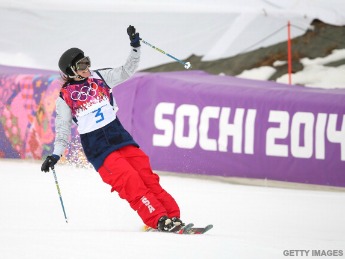Next time you watch world-class athletes battle for a medal in the Olympic Games, remember: Most of them aren't getting rich off placing among the world's best in their fields.
In fact, Olympians are facing tough times even getting to international competitions. A report from The New York Times reveals that restricted funding passed down to Olympians is forcing many Olympic qualifiers to pay their own way if they want to compete.
The solution for many? Crowdfunding.
That's how Keri Herman is keeping her skiing career alive. Despite being the top slopestyle skier in the world and ranking fifth overall by the Association of Freeskiing Professionals, Herman faces a financial crunch. For the past two years, the 32-year-old has seen her sponsors cut funding to invest into what she terms "cute little 15-year-olds."
The world's best skiers, she argues, have to figure out not only how to fund their Olympic dreams, but also to pay for international competitions, skiing gear, event rent.
"I’m forced to give away all this swag I got in Sochi to contributors," Herman tells the Times. "I want to keep this stuff, but I’d rather keep skiing, so it’s like, 'I guess I don’t need my Team USA hat.'"
Herman's story isn't an outlier. The U.S. Ski and Snowboard Association once worked to provide as much funding as possible to all competitors. But now, the organization is diverting the lion's share of money to the elite competitors.

In 2014 alone, skiers and snowboarders were left to fundraise about $2.5 million to cover operation costs. About $565,000 came from online crowdfunding, but the vast majority was provided by friends, family and the athletes themselves.
Athletes like Herman are forced to offer Olympic swag and other personal items as rewards to entice crowdfunding donations. But it still isn't an easy process -- crowdfunding sites take a large commission from the money raised, meaning athletes still have to live on the cheap if they want to scrape together a viable career.
The margin for financial error is thin enough that just a few donations be the difference between attending a competition or staying home.
The problem isn't limited to skiers and snowboarders, either. A number of U.S. sports organizations have pursued similar crowdfunding opportunities, including organizations for cycling, speedskating, archery, canoe and kayak, fencing, and bobsled and skeleton.
While the organizations say it's tough to keep those funds from athletes, they feel the money is better spent on sports science, training equipment and supporting the very best athletes.
Even so, athletes denied full funding are finding a way to excel. Five skiers and snowboarders forced to fund themselves won medals in Sochi.
But those athletes know the game is changing: Sometimes full funding requires more than winning.





